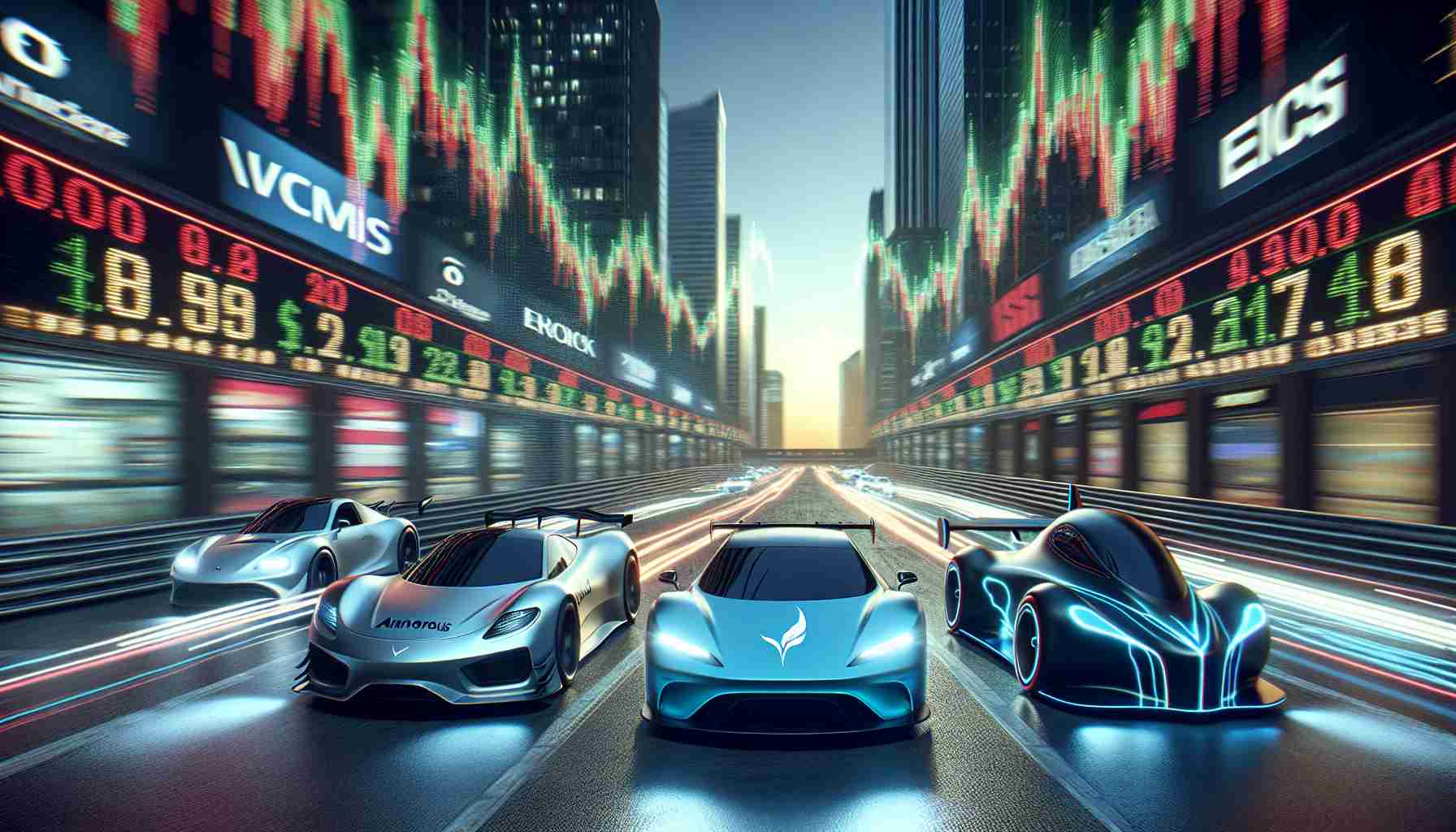Tesla has been on a wild ride, witnessing a staggering 130% rebound after a drastic dip earlier this year. With a market cap once again exceeding $1 trillion, the electric vehicle giant seems unstoppable. However, three companies might outshine Tesla over the next decade.
Berkshire Hathaway: Often known as a safe haven for investors, Berkshire Hathaway’s stable business model covers insurance, energy, and railroads. Unlike the fast-paced tech of Tesla, Berkshire thrives on steady growth. The company has a substantial cash reserve of $325 billion, which CEO Warren Buffett is expected to deploy strategically when market conditions are favorable. This careful approach might allow Berkshire to outpace Tesla’s flashy business if their bold robotaxi plans falter in an intensely competitive market.
Broadcom: Although Broadcom has a smaller market cap compared to Tesla, it holds significant potential in the tech sector, especially with its focus on artificial intelligence (AI). With products like ethernet networking equipment and AI accelerators, Broadcom stands to gain from the burgeoning AI industry. The acquisition of VMware is anticipated to bolster Broadcom’s position, and analysts suggest its AI-driven future could rival Tesla’s ambitions.
Eli Lilly: Surpassing Tesla might seem ambitious for Eli Lilly, but the pharmaceutical giant could surprise market watchers. Its type 2 diabetes and obesity drugs, Mounjaro and Zepbound, have already generated substantial revenue. Positive drug developments could potentially propel Lilly beyond Tesla, despite the risks inherent in pharmaceutical successes.
These companies, each with their unique strengths, could redefine market expectations, paving potential paths to outpace Tesla’s formidable journey.
The Unexpected Contenders Poised to Surpass Tesla’s Dominance
As Tesla continues to capture headlines with its swift market rebounds and technological advancements, there are other companies positioned to disrupt not just the electric vehicle market but a range of industries. While Tesla’s journey is closely watched, these three companies offer insights into alternative investment opportunities poised to impact global economies and communities.
The Rise of Berkshire Hathaway: A Slow and Steady Contender
While many investors focus on the rapid returns often associated with tech giants like Tesla, Berkshire Hathaway is a prime example of a different, yet equally effective investment strategy. Known for its conservative approach, Berkshire Hathaway’s substantial $325 billion cash reserve highlights its readiness to seize opportunities as they arise. This method, while sometimes criticized for not being exciting, offers a safe haven in volatile markets. Should economic conditions shift unfavorably, the company’s diversified investments across insurance, energy, and railroads provide stability that can outlast short-term market fluctuations.
However, reliance on traditional sectors also poses disadvantages in rapidly changing markets where technological innovations usually dictate the pace. Critics argue that without embracing tech-focused investments, Berkshire Hathaway might fall behind in a future dominated by digital transformation.
Broadcom’s AI Ambitions: Riding the Wave of the Future
Broadcom might not have Tesla’s market cap, but its focus on artificial intelligence and networking solutions positions it as a serious competitor in the technology landscape. As industries increasingly rely on AI-driven solutions, Broadcom’s products, including AI accelerators and ethernet networking equipment, are essential components. The acquisition of VMware further strengthens Broadcom’s position, suggesting a strategic push towards harnessing AI to revolutionize business processes.
The controversy, however, lies in the integration of AI across sectors— raising ethical concerns over job displacement and data privacy. While AI offers innovation and efficiency, societies must grapple with its implications on employment and autonomy of decision-making.
Eli Lilly: Pharmaceuticals Paving Unexpected Paths
Eli Lilly, with its recent success in type 2 diabetes and obesity medications, offers a unique proposition in the race against Tesla. Health and pharmaceuticals might seem like unlikely competitors to electric vehicles, but as global health crises continue to dominate concerns, companies like Eli Lilly might experience significant growth. The development of drugs like Mounjaro and Zepbound reflects the increasing value placed on healthcare innovation.
The pharmaceutical industry’s challenges—such as regulatory hurdles and high R&D costs—can’t be overlooked. Success in this field often depends on stringent approvals and robust clinical trial results, which involve risks not typically seen in the tech or manufacturing sectors.
Weighing the Pros and Cons: Is the Grass Really Greener?
These alternative giants highlight a range of benefits and drawbacks. Stability vs. innovation, growth potential vs. market volatility, these are the contrasts that potential investors must weigh. While Tesla’s tech-centric strategy focuses on rapid deployment and market capture, these companies offer diversified and sometimes steadier progression, invulnerable to many of the economic headwinds that challenge tech startups.
What Could Prove More Valuable in the Long Run—Steady Growth or Rapid Innovation?
This is the key question for investors and market analysts alike. With the unpredictability of global markets, communities and even entire countries may find that relying on diversified growth strategies offers more resilience. These industry giants demonstrate that while they aren’t as flashy, their impacts on technology, health, and infrastructure will undeniably shape futures.
For those interested in further exploring these companies and their markets:


























